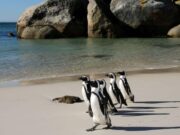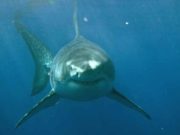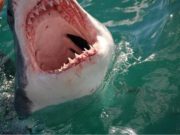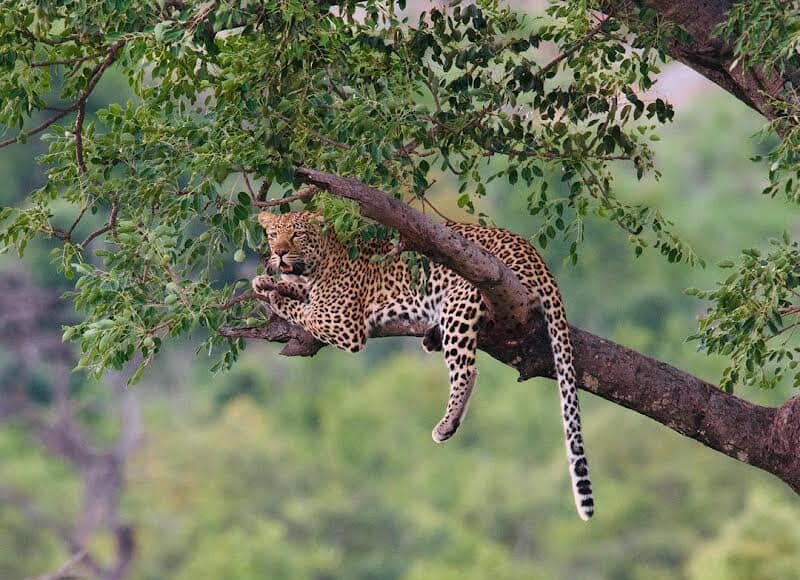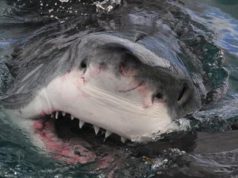
Betties Bays’ elusive but well-loved leopard created havoc at the African penguin colony at Stony Point last week. Social media buzzed with excitement and concern about the fate of the leopard.
Cape Nature, which took over the management of the Stony Point penguin colony in June 2014, issued this statement on their Facebook Page;
“We have proactively increased nocturnal patrols and introduced additional scent deterrents at the Stony Point penguin colony in Betty’s Bay after a leopard regrettably killed 33 endangered African penguins during a single visit.
On Saturday 11 June 2016 the leopard was spotted near the colony where it killed 33 birds and left one injured. A surviving chick and five penguin eggs were also found at empty nest sites in the area.
 The injured penguin, chick and eggs were sent to SANCCOB saves seabirds for rehabilitation, rearing and incubation. SANCCOB confirmed the wounds on the birds were consistent with those caused by a leopard.
The injured penguin, chick and eggs were sent to SANCCOB saves seabirds for rehabilitation, rearing and incubation. SANCCOB confirmed the wounds on the birds were consistent with those caused by a leopard.
Stony Point is one of the largest breeding colonies of endangered African penguins in the world and has been showing a measurable increase in breeding pairs, in comparison to declining populations on most island colonies. Back in 2010, when the African penguin was declared endangered on the IUCN Red List of Threatened Species, there were only about 1244 pairs, but today it is home to over 2388 breeding pairs.

 Since its establishment in 1982, when the first active nest site was recorded, Stony Point has continued to house breeding pairs of African penguins, despite a period between the 1980s and 1990s when more than 100 birds were predated by a leopard.
Since its establishment in 1982, when the first active nest site was recorded, Stony Point has continued to house breeding pairs of African penguins, despite a period between the 1980s and 1990s when more than 100 birds were predated by a leopard.
Cape Nature took over the management of the colony in June 2014 and will embrace the adaptive management process to find a best practice resolution for the colony.
Interesting Cape Leopard Facts were supplied on Facebook by Dr Jan Van Velden after residents expressed safety concerns.
The leopard will most likely just run away from a person. The Cape Leopard is about 1/2 the size of its more northern cousin. No attacks by Cape Leopard on people have ever been documented. So relax. The chances are that if you walk a lot around the Cape mountains,a leopard might have watched you. If you stand in Franschoek and look at the mountains, there are 45 leopards positively IDed in the mountains you can see. A Leopard’s spots are as good as fingerprints. Yes, there are leopards in the Overberg, but I cannot say how many. My theory is that the leopards became smaller with every generation here, because their larger prey was decimated and they adapted by a process called ”epigenetics. If the mother does not have enough food while pregnant, the child will be smaller than expected. So now leopards have to survive on dassies and birds. But leopards are the Apex Predator, and as such should be protected; otherwise, the ecosystem will go out of whack. Or at least, more out of whack. I really admire the pictures and am glad the Leopards are still here. The reason it killed so many penguins is that they did not run away, like antelopes in nature, which really confuses the leopard. For the same reason, they will kill more than one of a flock of sheep and so on.
